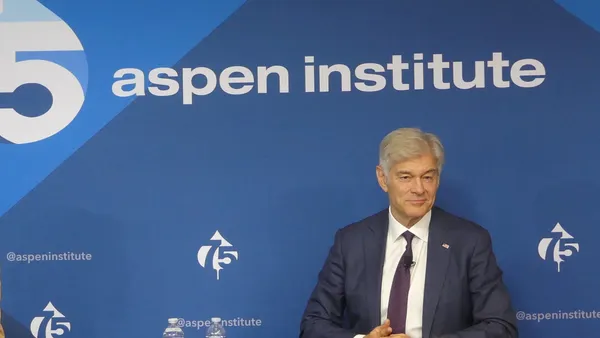Dive Brief:
- As part of her campaign efforts, Democratic presidential nominee Hillary Clinton set to propose a plan Tuesday to help small businesses.
- Her set of ideas includes implementing a new standard deduction to simplify tax filing, as well as changes to a currently under-utilized tax credit intended to help companies offer employees health insurance, The Wall Street Journal reported.
- If Clinton is elected, the move could dovetail with potential bipartisan efforts to improve health coverage via the Affordable Care Act, which is looking more feasible as a number of Republicans have suggested to Bloomberg they would be willing to work with a new Democratic president to improve rather than try to destroy the health law.
Dive Insight:
Clinton's campaign claims it will make it easier for small businesses to offer health insurance and other employee benefits two ways:
- Simplifying and expanding the ACA's healthcare tax credit for small employers to ensure that those with up to 50 employees are eligible, while also simplifying the phase-out and eligibility rules.
- Letting more small businesses pool together to provide retirement plans so they can offer employee retirement accounts.
The Wall Street Journal noted that earlier this year, the Government Accountability Office concluded as of 2014, only 181,000 employers claimed the healthcare tax credit out of the estimated 1.4 to 4 million businesses eligible.
Clinton could find herself in a position to make headway on numerous issues around health coverage if indeed enough Republicans agree to join forces on improvements to the current health law given that, if nothing else, they will be working with anyone other than Obama himself. The pressure will also be on because as noted by Bloomberg, the recent insurer exits from the ACA marketplaces are hitting rural areas particularly hard, many of which are Republican-led.
Pete Sessions, a Texas Republican who runs the influential House Rules Committee, told Bloomberg he remains opposed to the healthcare law, but he also conceded that it’s unlikely, for both political and financial reasons, that the law could be repealed outright.












